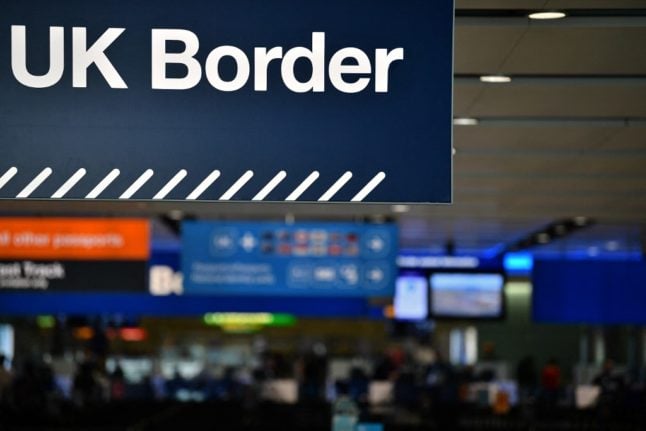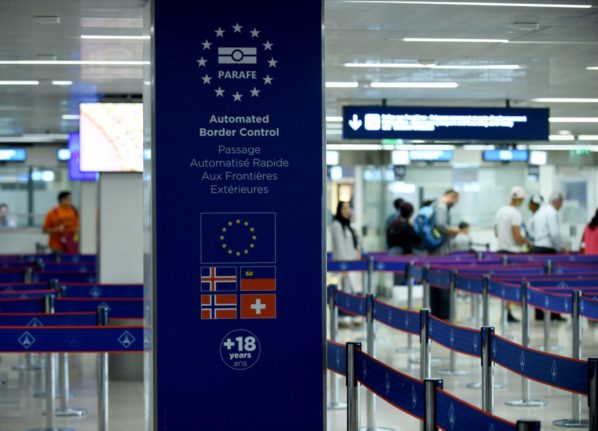Travellers arriving at the UK’s biggest airports over the Christmas period could face severe delays entering the country and even risk having their flights cancelled as a result of strike action by British border force staff.
A senior UK Border Force official told Britain’s i newspaper that “travellers can expect long queues at the airports affected by the strikes. We’re looking at similar waits as when we had all the Covid protocol issues in summer 2021 when queues of 10 to 12 hours were not unusual.”
“Passengers should also expect flight cancellations due to staff shortages,” they added, “so (they) should keep in touch with their airlines before travel.”
The Public and Commercial Services union (PCS) has voted for strike action over pay and conditions from December 23rd until the end of the year, with the exception of December 27th, that will affect all major UK airports.
The walkouts threaten to ruin Christmas travel plans for thousands of people coming from around the world, including Britons who live in Norway hoping to return home for the festive period.
British media outlets estimate that as many as two million passengers have booked to fly in and out of Britain over the Christmas period on at least 10,000 flights scheduled to arrive at the affected airports.
Where are the walkouts?
Around 1,000 Border Force staff are set to walk out from six UK airports, specifically Heathrow (Terminals 2,3,4 and 5), Gatwick, Birmingham, Manchester, Glasgow and Cardiff, and also the port of Newhaven.
The strikes will fundamentally affect passport checks for arrivals into Britain, as 75 percent of passport control staff are PCS union members.
Christmas is already one of the busiest travel times of the year, and walkouts from border staff are likely to cause severe delays and cancellations. Some British media outlets are reporting that passengers could be left to wait on their planes on the runway, something that would then have a knock-on effect on other incoming flights.
Though passports aren’t usually checked on outbound flights, arriving aircraft often turn around and set off on their next outbound journey within an hour or two. If queues for arrivals become so bad that passengers are kept on the runway, outbound flights will be delayed and departures could be cancelled.
A Home Office spokesperson said in a statement that “passengers should be prepared for potential disruption.”
Various affected airports have made preemptive statements expecting major delays and cancellations.
“We expect it will be necessary for airlines to cancel some services on the days impacted by strike action to ensure the number of arriving passengers aligns with lower UK Border Force resources,” a spokesman from Manchester Airport said in a statement. “Arriving passengers should also be prepared for much longer immigration queues on strike days, owing to reduced Border Force staffing levels.”
A Heathrow spokesperson said: “The Home Office advises that immigration and customs checks may take longer during peak times on strike days… Passengers are advised to check their flight status with their airline before travelling.” they added.
The British Transport Minister, Baroness Vere, has said that “the government does have mitigations in place,” which is thought to include army personnel and volunteers filling in for the striking staff.
Travel to and from Norway
A number of the affected UK airports are serviced by direct flights from Norway. These include Gatwich, Heathrow, Manchester.
Edinburgh, Aberdeen, Newcastle and London Stanstead, which have direct connections between the UK and Norway, will not be affected by the strikes.
Travellers should nevertheless keep updated and check with their airlines to stay informed of developments.
If there are delays in the UK, there could be a ripple effect (or last minute cancellations) in Norwegian airports, particularly if there are multiple daily departures to Britain, as is the case at both Oslo Gardermoen.
To compound the travel chaos, several airline strikes have also been called for this winter, mainly involving low-cost airlines Vueling and Ryanair.
Ryanair baggage handlers and on-the-ground staff have also been striking and will continue to do so until January 7th, 2023.
What if I have flights booked?
As the strike action has just been announced, normal cancellation rules still apply (for now) so don’t cancel your flight just yet. If your flight is cancelled by the airline, however, your regular rights will apply, including the possibility of being flown via another route, even on another airline if necessary, and hotels should be provided if you are kept overnight.
However, it is worth noting that as Christmas is a peak travel period anyway, finding extra seats as flights are cancelled to soften the impact of the strikes may be difficult.
It remains to be seen if, when, and how many flights will be cancelled. Cancellations are expected by all major airports, who have advised that passengers check the status of their flights before travelling.
For those who are set on travelling, expect severe delays at passport control, and keep an eye on the status of your flight in the coming weeks.



 Please whitelist us to continue reading.
Please whitelist us to continue reading.
Member comments